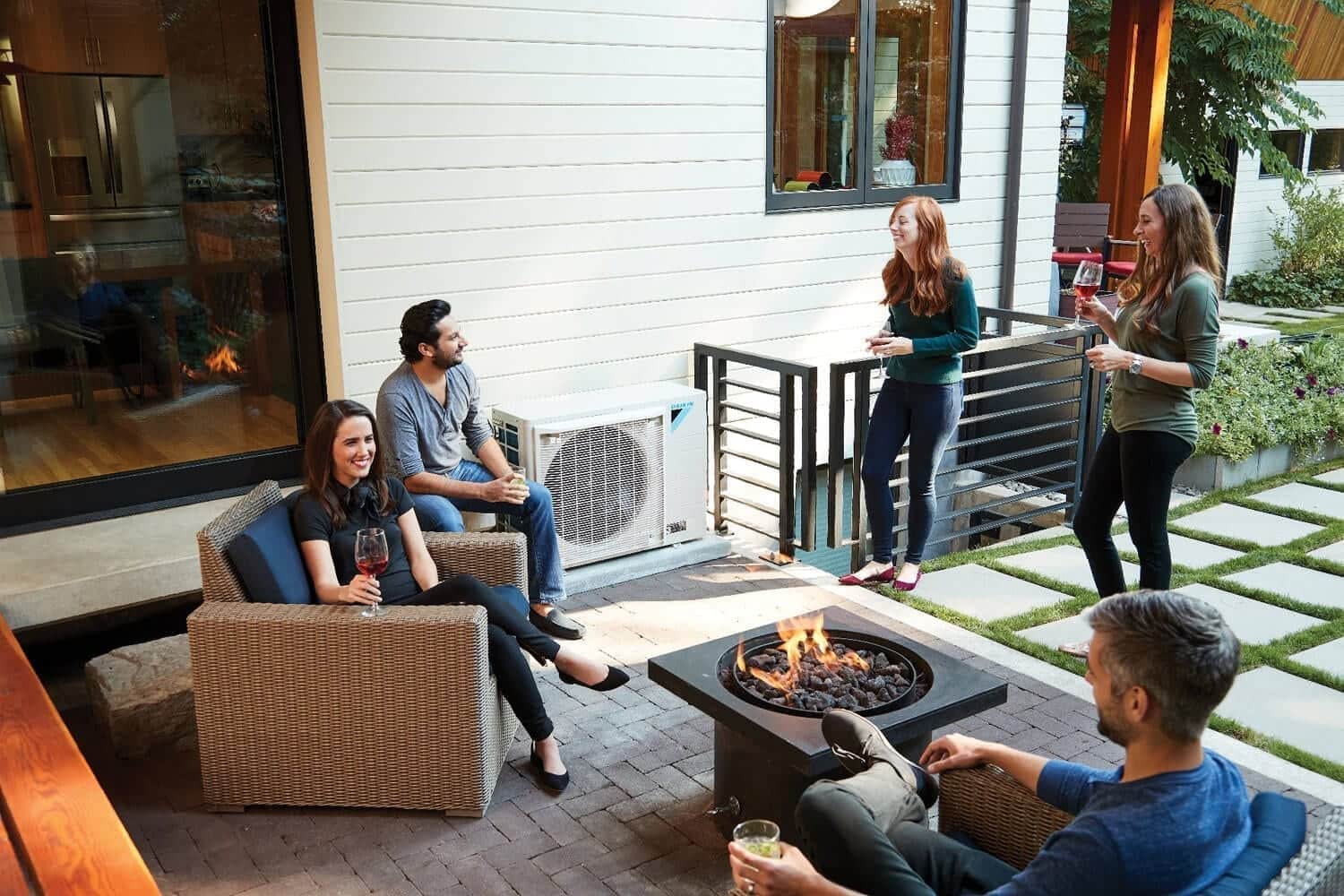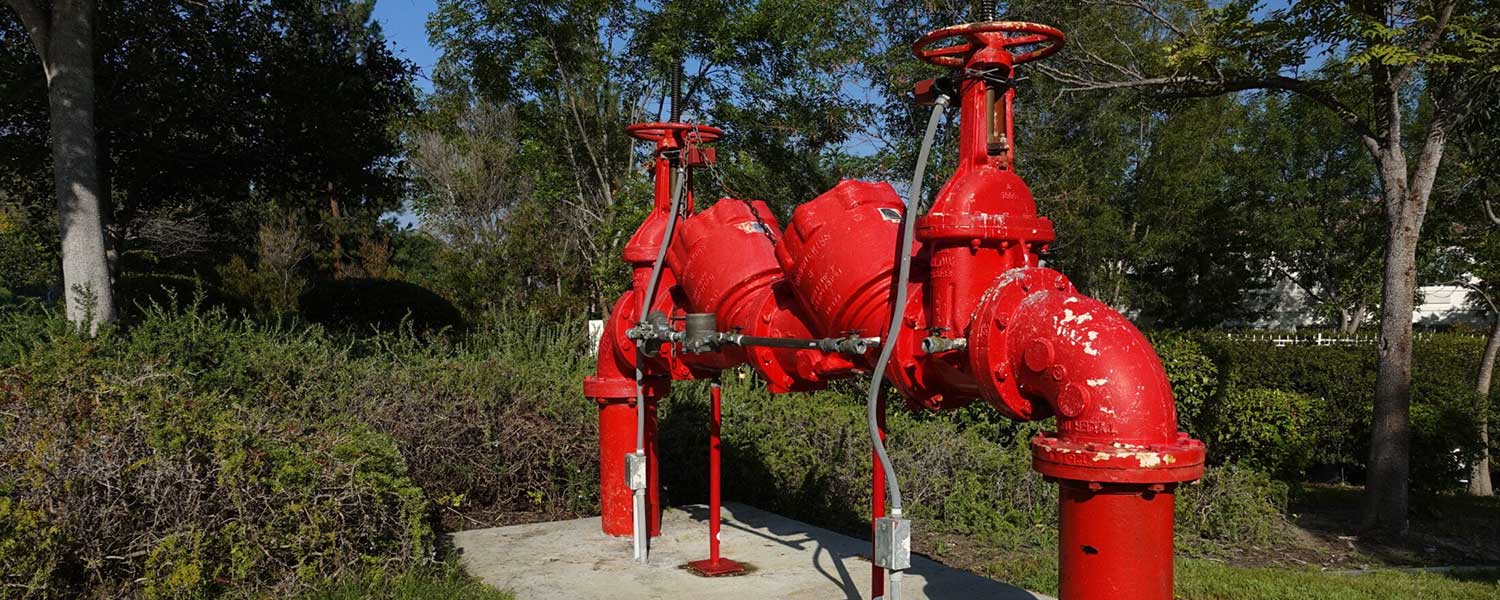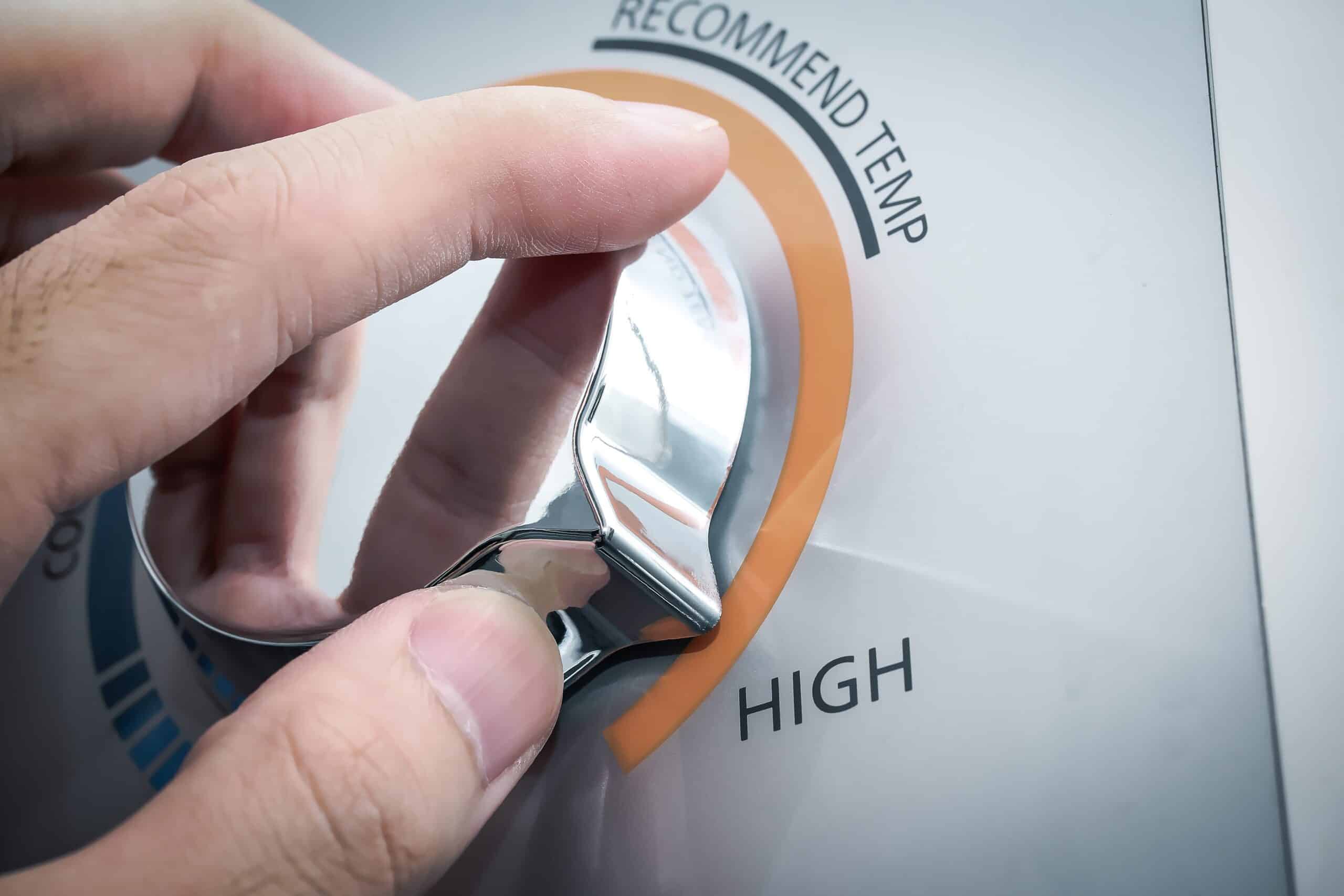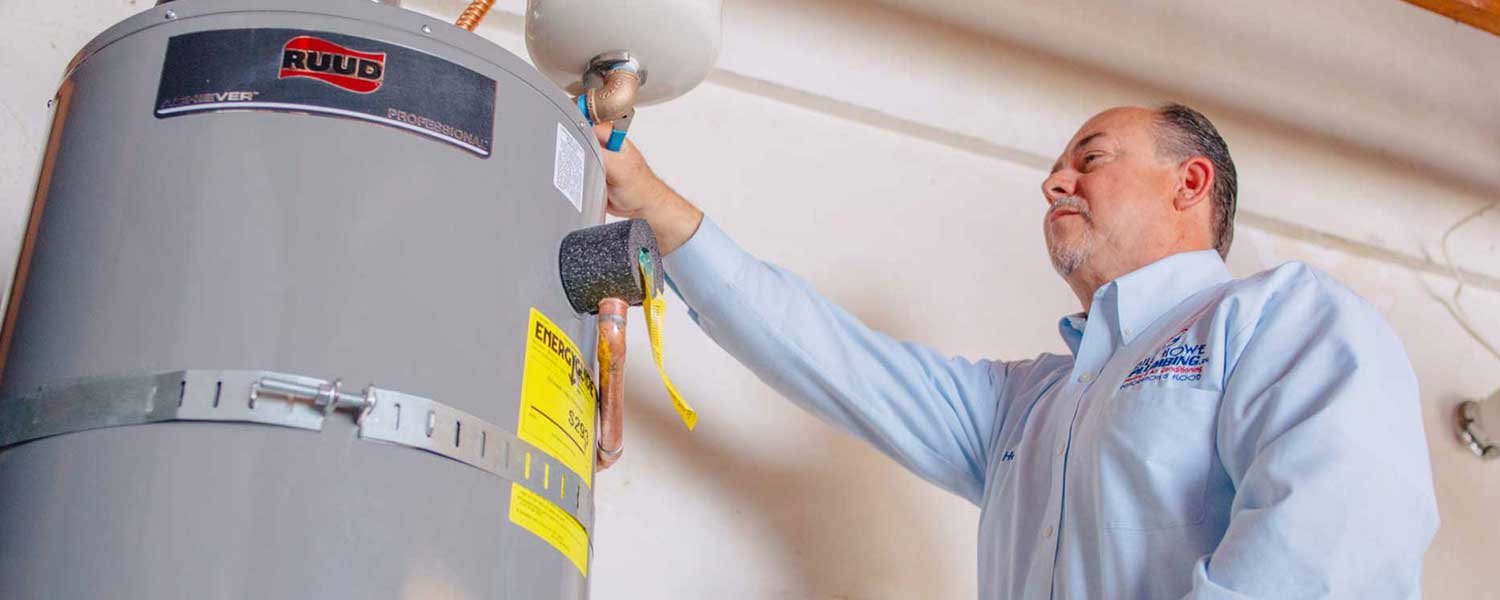If you’ve ever dealt with low water pressure, you’ll know it can be a pain to take a shower or fill the bathtub or washing machine. While you may not notice high water pressure as much, it can be a major problem and cause damage to your pipes and appliances. Too much pressure on your pipes and appliances can lead to leaks, damage seals, and shorten the lifespan of your appliances, like the water heater, washing machine, and dishwasher. A water pressure regulator can help. A water pressure regulator can take care of high water pressure issues and help you save money on your water bill.
Paying attention to the water pressure level in your home is essential. Too much pressure can lead to plumbing issues and cause other problems down the line. Low water pressure isn’t a good thing either. Low water pressure means you’ll have to deal with a trickle of water when showering or washing the dishes. Having adequate water pressure is essential so your household can use multiple water sources simultaneously without any issues.
In this article, we’ll discuss what a water pressure regulator does, its benefits, how to adjust it, and other valuable information.
How Does a Water Pressure Regulator Work?
What does a water pressure regulator do? A water pressure regulator is also called a pressure-reducing or regulating pressure valve. Its job is to regulate water pressure and reduce pressure from the main line as it travels into a home. Without this valve, the water pressure from the main line would be too strong for the home’s plumbing to manage, resulting in all kinds of potential problems.
If the water pressure isn’t reduced, it can cause damage to the piping in your home and any appliances affected by the water, such as the water heater and washing machine. The last thing you want to deal with at home is a flood from a burst pipe or a slab leak. However, if you suspect a slab leak or your pipes have burst and caused flooding in your home, call Bill Howe immediately. Our experts are available 24/7.
Managing Excessive Water Pressure
The water pressure regulator valve uses a spring, which water must pass through before it enters the home. When too much pressure is present the valve closes and lets less water through. You can control your water pressure by adjusting a screw located on the outside of the regulator.
Common household appliances such as dishwashers and washing machines have built-in water pressure regulators. However, a whole-house regulator goes above and beyond — it protects your appliances and all the pipes and plumbing fixtures throughout your home.
If you aren’t sure whether you need a water pressure regulator, consider the following benefits to help you decide. If the answer is “yes,” you can contact Bill Howe Plumbing for installation.
Boosting Low Water Pressure
Showering with a trickle of water can be a frustrating experience. Weak water flow can be fixed by slowly turning the adjustment screw on the water pressure regulator. You need to be careful, as too much or too little pressure can cause damage to your appliances and plumbing fixtures due to extreme pressure fluctuations. If you’re unsure, it’s best to call Bill Howe Plumbing.
Adjusting the Pressure
The adjustment screw is located on top of the water pressure regulator. To increase your water pressure, turn the screw clockwise. Adjusting the pressure should not be taken lightly. Be sure to adjust slowly and use a pressure gauge. A pressure gauge allows you to monitor the pressure as you adjust. The ideal setting should be between 40 and 60 PSI.
Note: Over-tightening the adjustment screw can damage the regulator, so if you’re not comfortable doing this, call our professional plumbers. Bill Howe’s professional plumbers know how to adjust water pressure regulators correctly.
Why Is a Water Pressure Regulator Important?
You may enjoy a massive stream of water every time you turn on the shower or faucet. The thing is, you’re wasting water and possibly increasing your water bill, too. It’s not just your water bill that is affected. Over time, high water pressure can take its toll on your home’s plumbing systems. A regulator can help keep your pipes and appliances running smoothly.
Protect Plumbing Fixtures
When your water pressure is too high, it places stress on the components inside your water fixtures. You may have to replace gaskets and seals less often with a regulator, and you run less risk of experiencing a catastrophic failure.
By stabilizing water pressure, you won’t need to worry about not using the dishwasher while taking a shower or getting a gush of water unexpectedly from changes in the water pressure.
What Are the Benefits
You know what a water pressure regulator can do. So, what are the benefits of maintaining adequate water pressure in your home? Here are some of the benefits:
Protect Appliances
Your water fixtures aren’t the only things that take a hit when the water pressure is too high. High water pressure is also hard on your appliances. The water pressure causes similar damage to the internal components of a washing machine, dishwasher, and water heater as it does to your fixtures. By regulating your water pressure, you will extend the life of your fixtures and appliances and spend less on maintaining them, too.
Another thing to consider is that high water pressure can void the warranty on your appliances. Many warranties put restrictions on the level of pressure. If your water is above the threshold, you may end up paying for any repairs on your own, even when a warranty usually covers the appliance.
Reduce the Risk of Flooding
If the city makes changes to the water line that increases its pressure, it can cause your pipes to burst. The result is a flood that’s extremely costly to repair and remediate. Older pipes have an especially hard time adjusting to increased water pressure, so considering a pressure regulator if you have older home infrastructure is a smart move.
Consistent high water pressure is hard even on newer pipes and can cause cracks, which turn into leaks in time. A flood can do major damage to your home, resulting in having drywall and flooring replaced, and paying for mold remediation, which is a common problem after flooding occurs.
A water pressure regulator can reduce the risk of leaks by preventing big pipe blowouts caused by high water pressure.
Save Water
We all must do our part to conserve water. If your water pressure is above 80 PSI, your water pressure level is too high. Reducing the pressure by 10 to 20 PSI can make a big difference — saving thousands of gallons a year. Decreasing your water consumption is great for the environment, too.
Save Money
By reducing high water pressure in your home, you’re protecting your appliances and plumbing fixtures, and you’ll save money on repairs in the long run. Your appliances will also last longer, so you don’t have to worry about replacing them as often.
Another way a water pressure regulator can save you money is to reduce water usage. Even reducing the water pressure by just ten psi can cut your water usage by thousands of gallons per year, and that adds up on your water bill.
Once you have a regulator installed, you can reduce water usage and save even more money by swapping out shower heads, faucets, and toilets with water-efficient and low-flow models.
Signs You Need a Water Pressure Regulator
Most newer homes already have a water pressure regulator installed. Regulations require every home built after 2002 to have one. However, these components only last for a decade or so, and you’ll need to replace them when they wear out. If you have a home built before 2002 and are unsure if you have a water pressure regulator installed, call Bill Howe.
The following are signs you need a water pressure regulator:
- High water pressure
Have you noticed that your water pressure is a lot stronger than usual? If so, you may need a new water pressure regulator. Before you replace it, try lowering the water pressure by adjusting the adjustment screw. If that doesn’t work, you may need to replace the regulator.
- Water pressure fluctuates
When your water pressure regulator isn’t working, you can experience fluctuating water pressure. When this happens, water pressure can be reduced when using multiple appliances simultaneously. For example, you’ll have low water pressure when you run the dishwasher while showering.
- Low Water Pressure
When you turn on the faucet or shower, do you get a trickle of water? Little to no water pressure can be a sign that you need to replace the regulator.
- Banging pipes or water hammer noises
Do you hear banging pipes or thumping or vibrations from your walls when water runs? If so, that can be a sign of high water pressure. Of course, other factors can contribute to noisy pipes. So, you can listen for noises next to the regulator. If you notice it’s louder near the regulator, it might be time to replace it.
- Leaky pipes
High water pressure can cause pipes to leak. Over time, too much pressure can cause the pipes to crack in some places. You can identify the problem early by checking for water under your regulator. Call Bill Howe for immediate assistance if you notice pooling water under the regulator.
Where Are Water Pressure Regulators Located?
If you have a water pressure regulator, you will usually find it where the main water line comes into the house. It’s typically located near the house shut-off valve. Look for a brass bell-shaped device sitting on top of the pipe.
When to Replace a Water Pressure Regulator
Though some regulators can last up to 10 years, they can fail after four or five years. If you notice any of the signs we talked about above, like fluctuating water pressures, loud noises in pipes, or leaks, it’s time to replace your regulator. If you suspect problems with your water pressure regulator, call a professional plumber for a proper inspection. Bill Howe’s plumbing experts can inspect and replace your water pressure regulator immediately.
Water Pressure Regulator Services
If you need to have your water pressure reduced or regulated, you can contact Bill Howe Plumbing. We are your San Diego plumbing experts and can install a water pressure regulator for your home or diagnose other issues with your plumbing.
Contact Bill Howe at 858.276.0256 for all water treatment services, including water pressure problems. We provide installation services for water softeners and water heaters, diagnose leaks, clean out clogged drains, and much more!
When you need an expert for your home’s plumbing, trust Bill Howe Plumbing. We know Howe!




